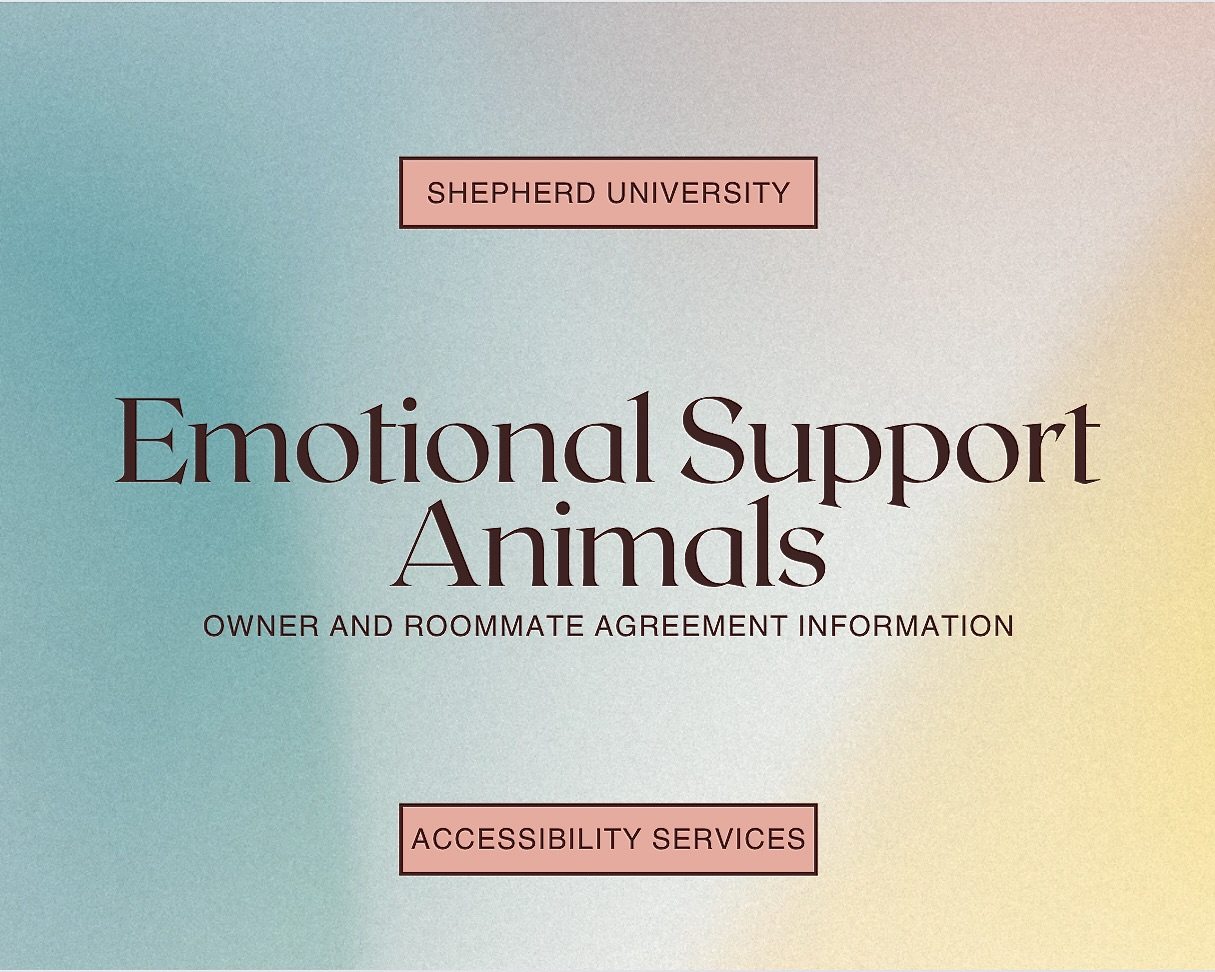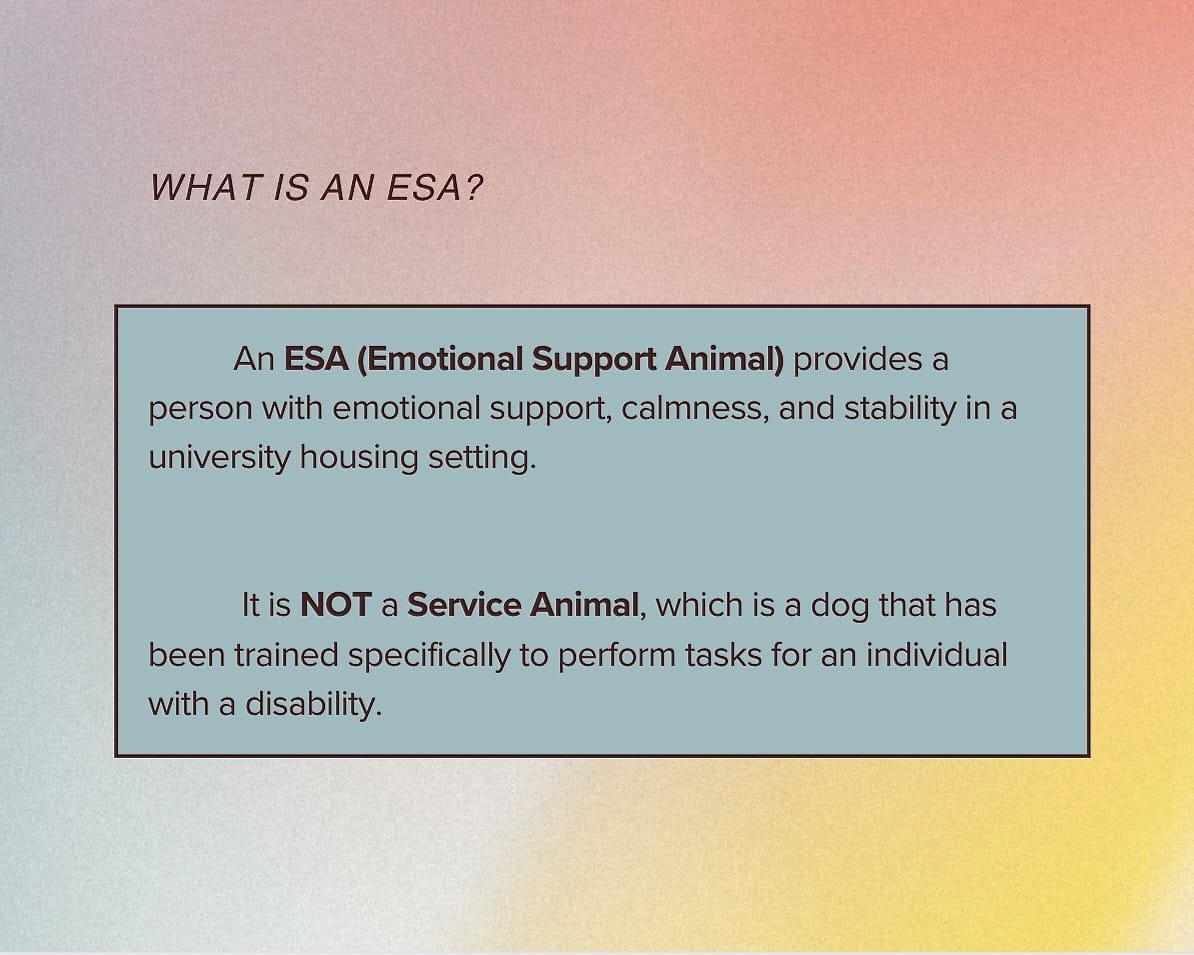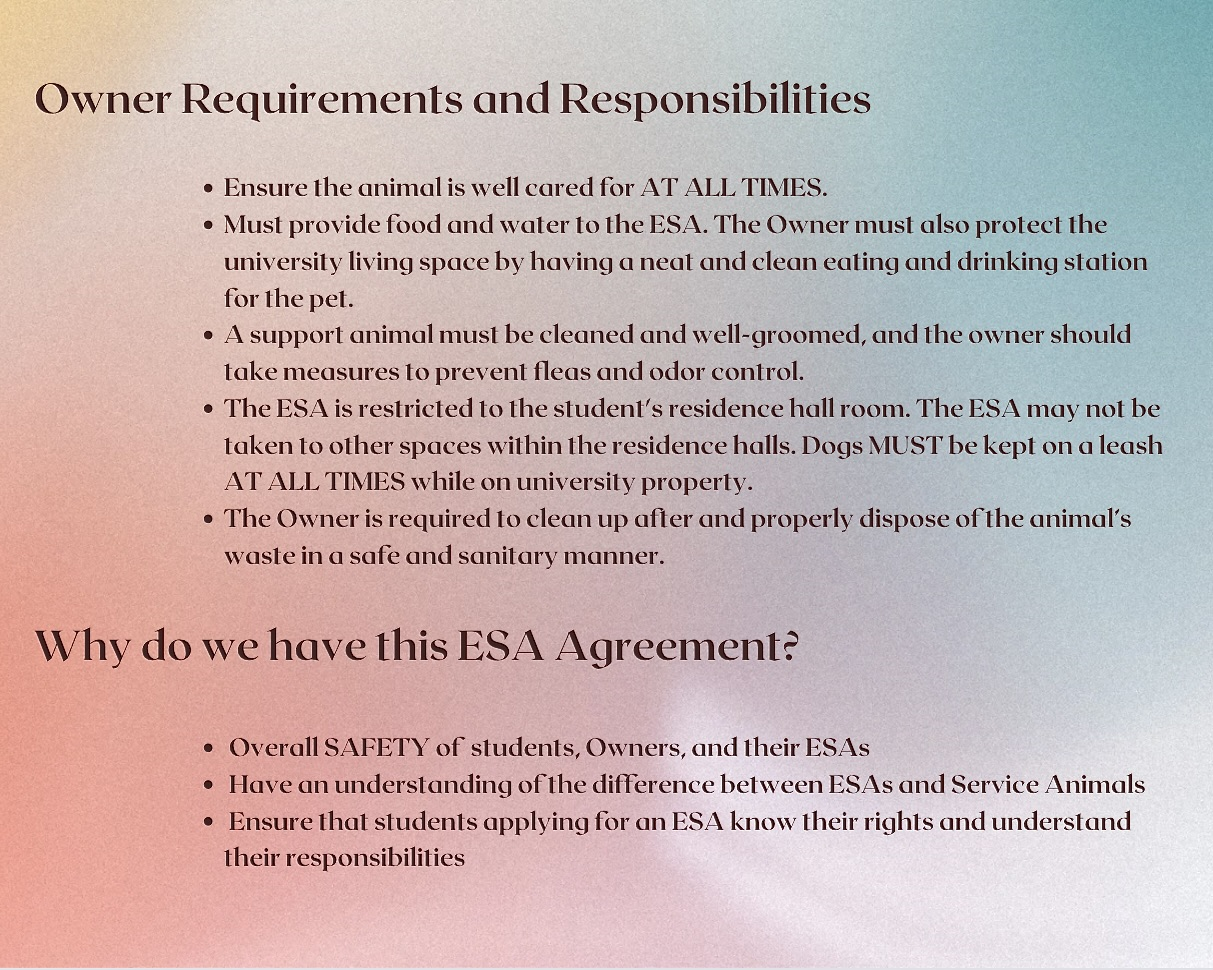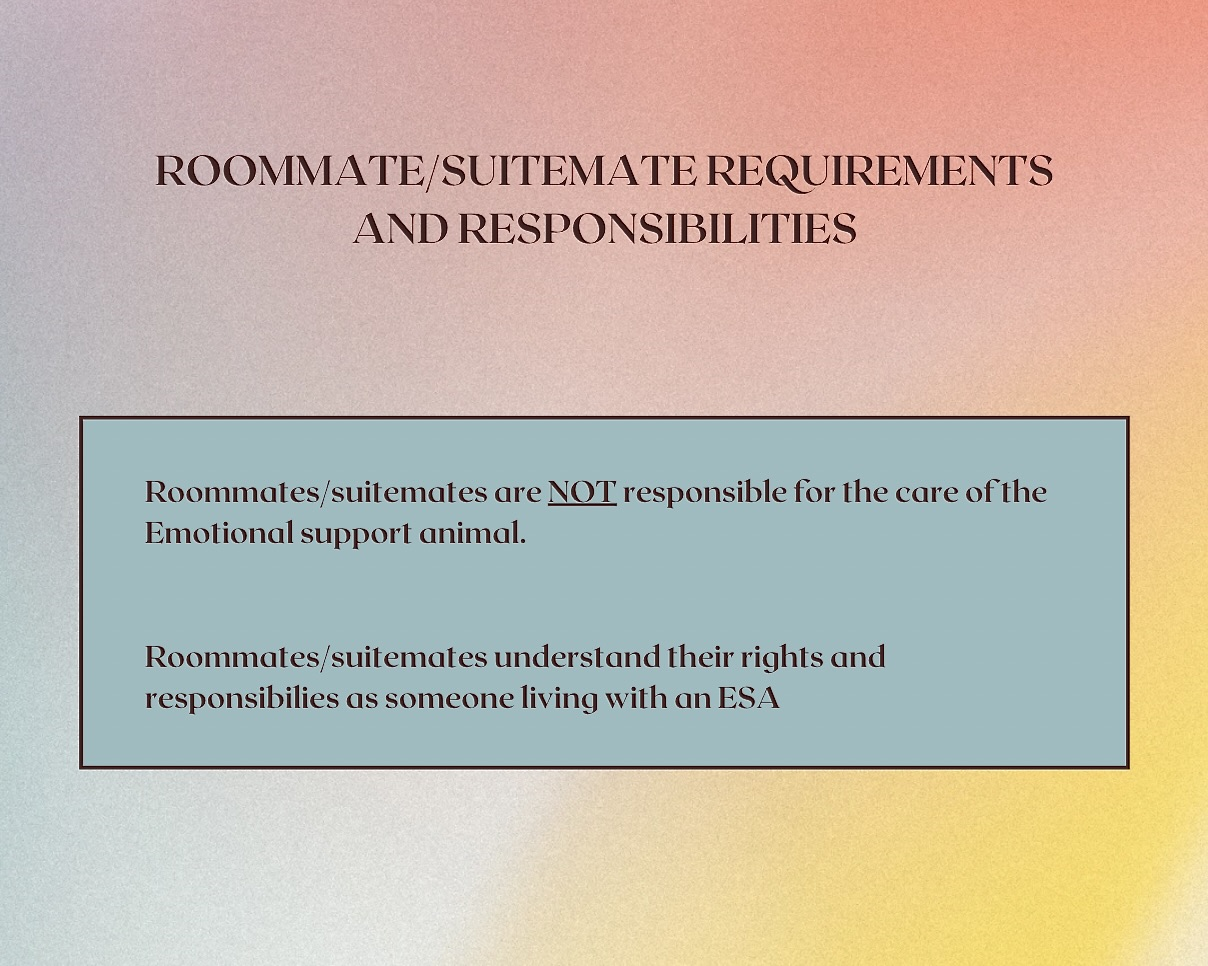Animals on Campus
- Emotional Support Animal- provides a person with emotional support, calming effects, stability, and other kinds of supports in a housing settings.
- Service Animal– a dog that has been individually trained to do work or perform tasks for an individual with a disability. The task(s) performed by the dog must be directly related to the person’s disability.
The student code of conduct states that Service Animals are recommended to be documented with Accessibility Services. This is for advocacy and support in case there are any barriers for the student and their Service Animal.
If there are questions concerning these guidelines, you may contact The Office of Accessibility Services or The Office of Residence Life.
What Do I need For An ESA?
To apply for an Emotional Support Animal, students will need to complete all of the following forms. An ESA is not permitted on campus until officially approved by Accessibility Services. It is advised that students bring an animal that they have an established connection with and not wait to adopt animals during this process.
It is highly recommended that students wait until they have received and completed all of the required documentation before applying for an ESA.
-
Submit the Accommodation Request Form
- If you are already registered with Accessibility Services, you will complete a Supplemental Accommodations Request
-
Have Supporting Documentation for your ESA request
- We do not accept certificates from online animal registration sites.
-
Read and Submit the Emotional Support Animal Owner Agreement
-
Submit Veterinarian Information
- There is a student (owner) portion and a veterinarian portion
- Please have the veterinarian or owner submit to accessibility@shepherd.edu
-
Have your Roommates/Suitemates Read and submit the Emotional Support Animal Roommate Agreement *
- It is the owner’s responsibility to notify their roommate(s)/suitemate(s) about the ESA and ask them to fill out this form.
- This must be completed by all students living in the same space at the one requesting the ESA.
-
Meet with the Director of Accessibility Services to discuss request and sign owner agreement
- Approval after the meeting can take between 5-7 business days.
Note: Established Accessibility Services and Residence Life housing procedures and deadlines are still relevant to students who keep assistance animals in their University residence. This includes, but is not limited to the availability of rooms, room assignments, and fees.



